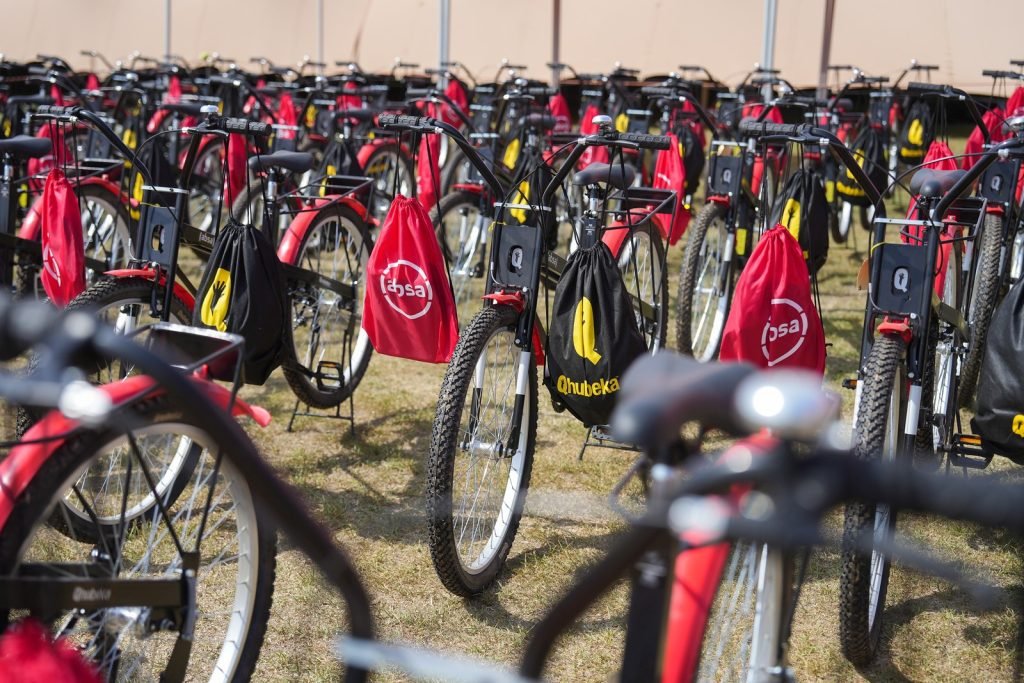By Tshidiso Masopha
The fashion industry provides over 60,000 jobs and makes up nearly 8% of South Africa’s GDP. Fashion Revolution South Africa is a project that focuses on reviving the textile and garment manufacturing sector by contributing towards economic growth and development whilst promoting environmental friendliness.
The organization hosts Fashion Revolution Week – an annual campaign that forms a crucial part of the project.
Commemorative week
On The 24th of April, 2013, an 80-storey building accommodating garment factories collapsed in Bangladesh – killing more than 1100 people. Fashion Revolution Week is a commemoration of this tragedy, bringing together a variety of activations worldwide. Now in its tenth year, Fashion Revolution Week celebrates with 10 days of action.
Fast fashion giants like Shein and TEMU are aggressively targeting price-sensitive and fashion-loving South Africans, making it harder for local brands to survive. What’s worse is that both TEMU and Shein have been significantly scrutinized for their unethical production methods.
Fashion Revolution Week’s call to action urges every individual and organisation to contribute to a fashion industry that protects natural resources as well as the people who make our garments.
Taking Care of Business (TCB) has close affiliations with Fashion Revolution SA. Their primary mission is to eradicate poverty in South African households. The organisation runs various training and development initiatives to empower unemployed South Africans to start their own sustainable businesses with a keen focus on the fashion industry.
To date, TCB has empowered over 7,000 unemployed men and women and diverted over 20 million fashion, homeware and appliance items from landfill dumps.
Tracey Gilmore, TCB’s COO, says, “Fashion Revolution Week calls on each of us to play our part. We need to imagine a new fashion future – one that is sustainable and honours local producers. Our Remake programme is not the full solution to the fast fashion crisis but we are playing our part and we ask everyone to do the same. Economic mobility and dignified work opportunities should not come at the expense of sustainability. When we create self-employment opportunities, we must consider the costs and benefits to people, their communities and our planet’s finite resources.”
Abigail Masholoko, a seamstress in the TCB’s Remake programme, says, “The clothes that are donated to us, inspire me. Some people may see rejected or broken clothes but I see what these items could become! Those clothes can be changed into something else, a skirt can become trousers and trousers can be transformed into a skirt, a bag or a pot plant cover. There are many things that can be made from old clothes.”
It’s evident that recycling and fashion can co-exist and create jobs. Sustainability in this competitive sector is scarce due to factors such as price sensitivity and the sheer pace of the industry. Fashion Revolution SA and TCB are demonstrating that there’s a better way.
“At the heart of the fashion revolution should lie the principles of the five R’s: refusing, reducing, re-wearing, repurposing, and recycling. These pillars offer practical solutions for consumers to adopt in their daily lives to minimise their environmental footprint. By embracing the five R’s of sustainable fashion, individuals can contribute to building a more ethical and sustainable fashion industry, one garment at a time. Through collective action and collaboration, we can redefine South Africa’s fashion industry, creating a future where prosperity is shared and the planet is protected. From seamstresses in the informal economy to retailers and consumers, everyone has a role to play in shaping a more equitable, inclusive, and sustainable fashion ecosystem,” Gilmore says.
The post A Fashion Revolution: Saving the World in Style – By Tshidiso Masopha appeared first on The Home Of Great South African News.
The fashion industry provides over 60,000 jobs and makes up nearly 8% of South Africa’s GDP. Fashion Revolution South Africa is a project that focuses on reviving the textile and garment manufacturing sector by contributing towards economic growth and development whilst promoting environmental friendliness
The post A Fashion Revolution: Saving the World in Style – By Tshidiso Masopha appeared first on The Home Of Great South African News. Read More



